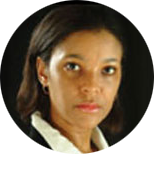
(Hons), BVC, LL.M, P.C.H.E
1) ANYONE CAN APPLY
Legal Aid is for persons who are vulnerable, unemployed, or have a low income, and/or otherwise cannot afford the basic legal fees. Legal Aid is for the truly destitute, or those at risk of physical and mental abuse; at risk of homelessness or losing their homes, accused of a crime and may face jail or detention immediately if not represented in court; are being discriminated against or are need of family mediation.
2) Everyone who applies, gets approved
When you apply for legal aid, approval is not automatic. The Executive Director of the Legal Aid Clinic, Ms.Samanthia George, will conduct a means test, and investigate your claims for your inability to afford basic legal fees; and then she will present your application to the Legal Aid Board for approval ( if she feels that you are likely to qualify for legal aid.)
3) Lawyers who volunteer to do Legal Aid have nothing else to do…
Many of the practising attorneys in Saint Lucia have volunteered to assist with legal aid, from those serving on the Legal Aid Board, to those who are willing to assist in certain areas of law. Senior lawyers, junior lawyers and lawyers who were recently called to the bar have all volunteered to assist those who qualify for legal aid. Although lawyers are very busy, some of them are willing to provide free legal services for the community. Most lawyers have busy private practices whether they work in a law firm or are solo practitioners, they will also have family and other personal commitments which means they will not be able to take only legal aid matters. They will have to balance the amount of pro bono work that they do with their practice.
4) Legal Aid is for all types of matters…
All matters cannot be dealt with via the Legal Aid Clinic due to human resources and time constraints. Therefore, the areas have been limited to the following: certain criminal matters, uncontested divorces, basic land and probate matters and family matters. For lengthy criminal trials, the State will provide legal representation for victims and those accused of more serious offences will have to appeal to family and friends to raise the funds to pay a lawyer if the Legal Aid Clinic is not in the position to provide legal representation.
5) There are several legal aid clinics throughout the island.
A Legal Aid Clinic is a government funded non-profit organisation. The Clinic should be a centre of public legal education; a referral centre for other social assistance programmes; assist with community development and law reform. The Legal Aid Authority is governed by an independent Board of Directors appointed by the Minister of Legal Affairs in 2013, who are representative of the community they serve. At present, there is only one physical structure for legal aid on the island which is located on Brazil Street. One of the concerns of the Executive Director of the Legal Aid Clinic, is that she presently has no staff to assist her. It is hoped that this will change in the near future. Ideally, a legal aid clinic should employ lawyers, paralegals, and administrative staff to provide legal information, advice and representation. Similarly, it is likely that there will be more than one legal aid clinic to assist more individuals and families in the community in years to come.
6) Legal Aid only provides summary legal advice.
On approval, legal aid will assist the applicant from summary legal advice in the clinic to the courtroom if necessary. Legal Aid also covers: appraising the candidate of his or her legal rights and obligations; explaining the court procedure; the role of the lawyer and the judge; courtroom etiquette; and attire. This list is by no means exhaustive, however, the lawyer will adequately prepare his or her client in terms of expectations in court.
7) Legal Aid is an initiative of Attorney-at-law, Ms. Mary Francis.
Ms. Mary Francis has dedicated her legal services largely to human rights. Her office was located in the same building as the Legal Aid Clinic at one time, but the clinic has since moved to another building on Brazil Street. Ms. Francis is one of the many lawyers to whom the Legal Aid Clinic refers its successful candidates.
To find out more about legal aid, please contact the Executive of the Legal Aid Authority, Ms.Samanthia George at the Legal Aid Clinic, telephone number 4517893 or 7243363; email the Legal Aid Clinic at [email protected]. It is located opposite the Dereck Walcott square on the first floor of the Stanthur Building.
Ms. Trudy O. Glasgow is a practising attorney at the law firm Trudy O. Glasgow & Associates, a court-appointed mediator and author in Saint Lucia (and has also taught law at University level in the UK)*
This column is for general use only, for advice specifically for your case, please see your lawyer.
Share your thoughts and comments: you are invited to email me at [email protected]












